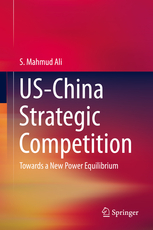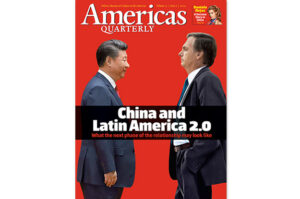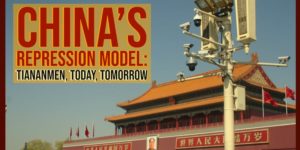 The rise of authoritarian China and the resulting new strategic competition were prompted by the “worst strategic blunder any country has made,” says a leading analyst.
The rise of authoritarian China and the resulting new strategic competition were prompted by the “worst strategic blunder any country has made,” says a leading analyst.
Demonstrating that there is idealism, as well as self-interest, in forming a common front as democracies was an implicit goal of the Summit for Democracy, according to Big power rivalry: Who is winning the popularity wars?, a Chatham House analysis:
Even though the summit came and went with little real-world impact, it appeared to rile Beijing. The Chinese government hastily convened its own democracy forum and published a white paper called ‘China: Democracy That Works’, alongside a highly negative report entitled ‘The State of Democracy in the United States’.
The key wider test for the White House, suggests Leslie Vinjamuri, Director of the US and Americas program at Chatham House, is showing a linear route back to the democratic fold while still allowing countries to do it their own way.
 China’s Belt and Road Initiative (BRI) has been central to Beijing’s charm offensive on all continents. In Latin America, it counts Brazil and Chile among nations with which it is the leading trade partner, and it is close to achieving the same with Argentina, John Kampfner writes:
China’s Belt and Road Initiative (BRI) has been central to Beijing’s charm offensive on all continents. In Latin America, it counts Brazil and Chile among nations with which it is the leading trade partner, and it is close to achieving the same with Argentina, John Kampfner writes:
Chris Sabatini, senior fellow for Latin America at Chatham House, puts some of China’s progress down to American complacency. ‘The US has been coasting since the 1990s,’ he says. When the Inter-American Development Bank and World Bank were slow to stump up cash, the Chinese stepped in. Sabatini cites several motives for China’s increasing involvement in the region. ‘They need raw materials and Latin America provides them cheaply. They want at least neutral enablers. They want help in turning multilateral institutions more in their favor.’
Unlike Russia, with its long-standing links to regimes in Cuba and Venezuela, the Chinese do not want to be seen to be agitating. ‘No-one cites China as a revolutionary model,’ says Sabatini, a former National Endowment for Democracy (NED) staffer. ‘They want to be seen as the quiet alternative.’

National Endowment for Democracy
A new medium-term policy agenda would contest China’s use of economic coercion, including through an ambitious regional trade policy that aims to reduce countries’ reliance on the Chinese market; build new technology partnerships to ensure the free flow of information; and focus existing alliances on protecting democracies from external interference, argues Richard Fontaine, CEO of the Center for a New American Security. Washington would continue many of the efforts that currently fall under the broad umbrella of competition, but it would channel them toward resisting Chinese attempts to upend key elements of the liberal order, he writes for Foreign Affairs.
Political scientists John Mearsheimer traces the current malaise back to the ‘liberal triumphalism’ which marked the demise of Communism in the early 1990s, Kampfner adds. Back then he was almost a lone voice in warning of the dangers of a powerful China – recently he concluded an essay by predicting a ‘dangerous security competition is all but unavoidable’.
“Washington promoted investment in China and welcomed the country into the global trading system, thinking it would become a peace-loving democracy and a responsible stakeholder in a U.S.-led international order,” Mearsheimer wrote in Foreign Affairs. “Of course, this fantasy never materialized. Far from embracing liberal values at home and the status quo abroad, China grew more repressive and ambitious as it rose. ” RTWT







